Redefining Blackness
How Redefining Blackness Can Unravel the Caste System in the United States
Imagine growing up in a world where the color of your skin determines not just how you’re treated, but how you treat yourself and those around you. A world where you inherit an identity shaped by stereotypes, judgments, and expectations, none of which you had any say in. This is the reality for millions of Black people in America.
I want to take you on a journey today—a journey that starts with a word, leads us through a system, and ends with a call to action to break free from a program that has been running in the background of our collective consciousness for far too long.
The N-Word: A Starting Point
Let me tell you a story. A friend of mine, Jay, recently invited some friends over to help with a move. During the day, one of the guests started going through his things without asking. Jay told me, “I’m not going to lie, and I don’t mean to sound messed up, but that’s why I don’t let N-words in my house like that”.
Now, Jay is Black. We’ve known each other a long time, and I wasn’t surprised by his use of the word. But I had to ask him, “If you know that word carries so much negativity, why do you use it?”
He couldn’t give me a clear answer. It was just… natural. Something he’d always done.
That word, that one word, carries with it the weight of centuries. It’s a word born out of hate, out of dehumanization. And yet, in our community, it’s become a casual greeting, a term of endearment, a way of reclaiming power. Or so we tell ourselves.
The N-Word is used to define a subculture within our subculture and is generally seen as negative by the whole world. Somehow we have been convinced to keep it.
But here’s the question I want to explore today: Why do we hold on to something that was designed to strip us of our humanity? Why have we accepted the program that tells us this word belongs to us?
Blackness and the Caste System
Let’s zoom out. This isn’t just about a word. It’s about an entire system—a caste system, where “Black” has come to represent not just a color, but a position at the bottom.
Think about it. “Black” is the darkest color, the absorption of all light. It’s often associated with disaster, calamity, and tragedy. And yet, this is the label that’s been assigned to an entire group of people. A label that tells us, whether we realize it or not, that we are less than.
I know that sounds harsh. And I love my people and where I come from. But I want you to reflect on how often we are asked to check a box—Black, White, Other. These categories may seem innocent, but they have deep historical roots. They stem from a need to categorize, to organize people based on a hierarchy that was never meant to serve everyone equally.
In America, that hierarchy places White at the top and Black at the bottom, with everyone else somewhere in between. We call it race, but what we’re really talking about is caste—an invisible system that defines who we are before we even have a chance to define ourselves.
The Program We’ve Inherited
Now, here’s the thing: This system doesn’t just exist outside of us. It’s not just a structure imposed on us by society. Over time, we’ve internalized it. It’s become a program—a set of beliefs and behaviors that we’ve inherited, that we’ve learned to live with.
Let me explain.
Somehow, Blackness has come to mean more than just the color of our skin. It’s a way of being, a set of rules and expectations that we’re judged by. The words we use, the music we listen to, the food we eat—all of these things have become markers of our Blackness. Step outside of these lines, and your Blackness is questioned. You’re no longer “Black enough.”
But here’s the question I want us to consider: Who decided what Blackness means? Who decided that being Black should be tied to violence, aggression, or poverty? Why are we still following a script that was written for us long before we ever had a say?
We’ve been handed a program, and we’ve accepted it. We’ve allowed the media, the government, and society at large to define who we are. Look at the images of Black people in popular culture—violent, hypersexual, aggressive. These are not who we are. And yet, we’ve bought into these images because they’ve been sold to us for so long.
But we are not a monolith. We are not defined by the worst stereotypes society places on us. We are so much more than the box we’ve been placed in.
The Consequences of This Program
The consequences of this program run deep. When we internalize these ideas about who we are, we start to believe them. We start to believe that Blackness equals danger, or that things such as education, money, or neighborhood, etc. somehow makes us less Black. We start to police each other, to keep ourselves in the box that was never meant to hold us.
And what’s worse is that this program isn’t just about how we see ourselves—it’s about how the world sees us. The media perpetuates the same tired narratives, casting Black men as thugs or criminals, and Black women as hypersexual or angry. Our children grow up seeing these images, and before they even know who they are, they’ve been told who they should be.
This is the program. And it’s time to reject it.
The Call to Redefine
So, how do we break free from this program? How do we redefine Blackness in a way that reflects our true selves, our full humanity?
It starts with recognizing the program for what it is: a lie. A lie that was created to divide us, to control us, and to keep us in a position of weakness. We must understand that Blackness isn’t something that can be defined by a single set of characteristics or behaviors. Blackness is as diverse as the people who embody it.
To redefine Blackness, we must reject the labels that have been placed on us by society. We must reclaim our narrative, telling the stories of Black excellence, of love, of resilience. We must celebrate the fullness of our identity—not just the parts that fit neatly into the boxes that others have created for us.
We must also recognize the caste system that still exists today. We must understand that race is not just a social construct, but a tool used to maintain power. When we see it for what it is, we can begin to dismantle it.
My call to you today is this: Reject the program. Whether you’re Black, White, or any other race, recognize the ways in which this system has shaped your beliefs, your behaviors, and your view of the world. Challenge those beliefs. Challenge the narrative.
If you’re Black, I urge you to stop living by someone else’s definition of who you are. You are not a stereotype. You are not a label. You are a full, complex human being with a history, a future, and a story that is uniquely your own.
And for those of you who don’t share this identity, I ask you to look at the ways in which you’ve been complicit in this system. Not out of guilt, but out of a desire to build something better. It’s not enough to not be racist—you must be anti-caste. You must be willing to see and reject the systems that divide us.
Because ultimately, this isn’t just about Blackness. It’s about all of us. We’re all living in a world shaped by race, by caste, by categories that divide us. And the only way forward is to reject the boxes, to rewrite the code, and to build a world where we’re all free to define ourselves—on our own terms.
If you enjoyed this post, buy me a Kofi🍵!
Thank you for Reading!
Be sure to check out the YouTube Channel Talk With BJH!
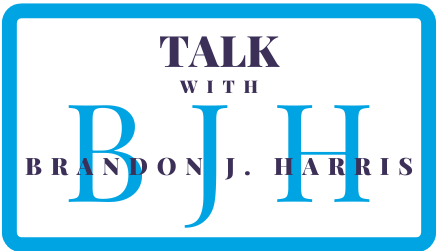

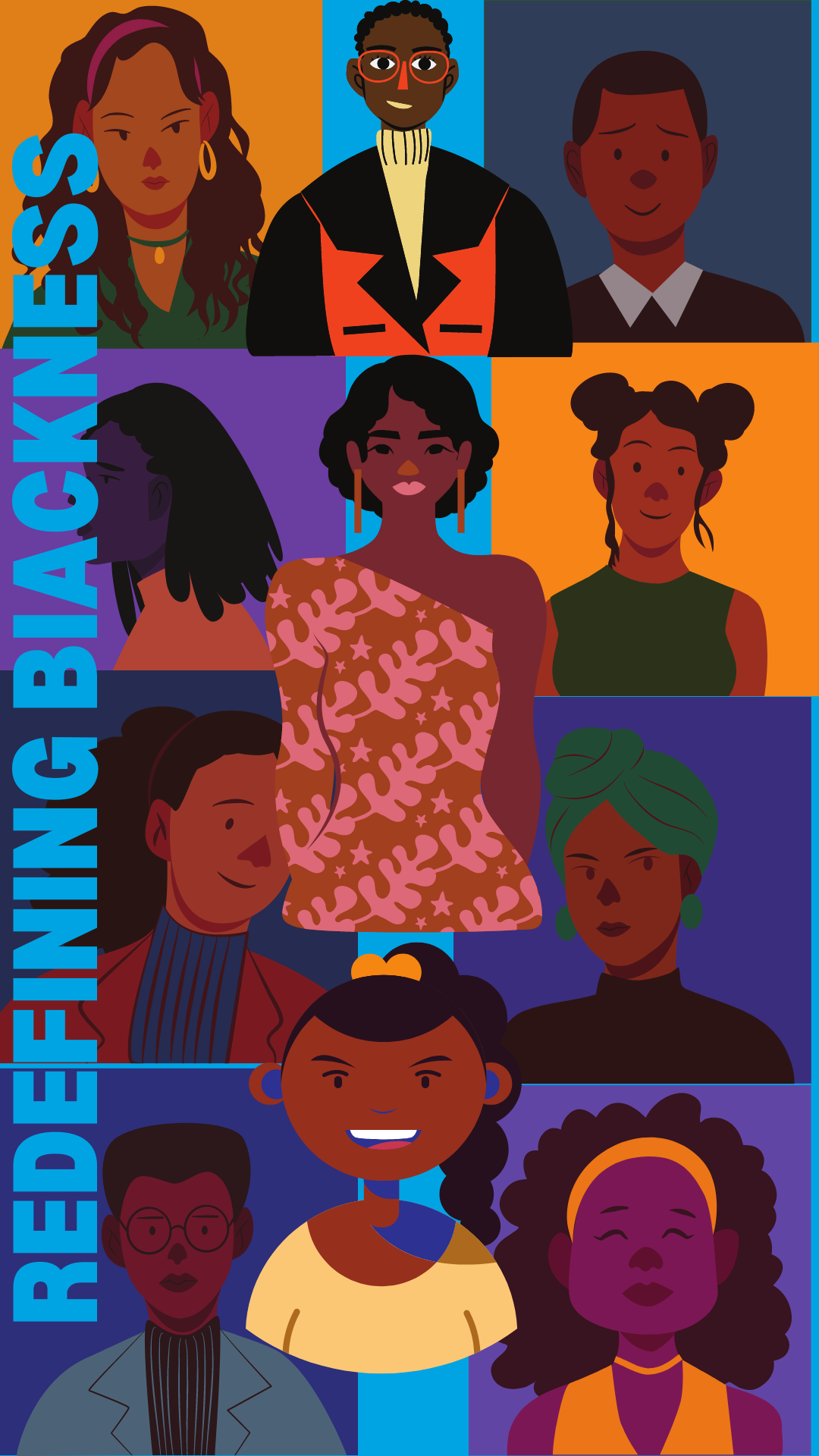
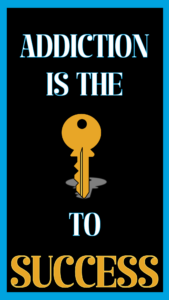
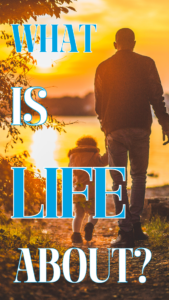
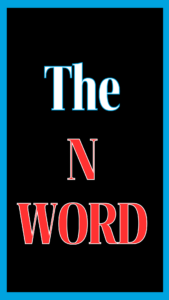
Pingback: The Power of Pushing People Out to Let Peace In - Talk With BJH